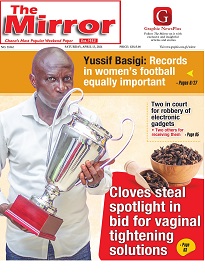The Mirror's Health , Lifestyle and Fashion

What constitutes legal marriage in Ghana?
Dear V. K., In Ghana, three types of marriages are recognised by the law. These are Customary Marriage, Mohammedan Marriage and Ordinance Marriage.
Advertisement
The traditional marriage (popularly known as “engagement”) is known in our law as the Customary Marriage. Customary marriages are recognised under the Marriage Ordinance CAP 127.
The legal effects flowing from these marriages differ. While Customary Marriage and Mohammedan
Marriage permit a man to marry more than one wife, Ordinance Marriage limits a man to one wife and no more.
The fact that a marriage is celebrated in a church does not automatically make it a valid Ordinance Marriage unless the marriage register is signed.
Marriages contracted under Customary Law are recognised as valid under the law whether they are formally registered or not. Under Part I of Cap 127, Section 1 makes provision for the registration of Customary Marriages but does not make it mandatory.
According to Section 2 of Cap 127 after the marriage ceremony, either of the parties may apply to the registrar of the district in which the marriage was contracted for the marriage to be registered in the Register for Marriages.
If the marriage is registered under Part I of Cap 127 and the marriage is subsequently dissolved, the dissolution or divorce must be registered as well (Section 6), unless it is dissolved by a petition to the courts as provided in Section 41 of the Matrimonial Causes Act, 1971 (Act 367).
However, if you intend to contract a monogamous marriage, Customary Marriage may not be a good option because such marriages are potentially polygynous, i.e. your husband may add on wives as permitted under custom.
If you contract a valid monogamous marriage, the potentially polygamous marriage under custom would be converted into a monogamous marriage.
Monogamous marriages are contracted under Part III of Cap 127 and there are three (3) ways of achieving this. Cap 127 provides for
• Marriage by a Registrar's Certificate, which is contracted in the Marriage Registrar’s office (Section 42-46 of Cap 127)
• Marriage by a Marriage Officers Certificate, which includes marriages carried out in a licensed place of worship around the country, which includes some churches (Section 48-54 of Cap 127).
• Marriage by Special Licence of the Registrar (Section 55), which may be celebrated in a place other than a licensed place of worship or the Registrar’s office provided the Registrar approves.
Another recognised form of marriage celebration is through Mohammedan Law. Mohammedan Marriage, as it is popularly called, forms part of the three types of marriages in Ghana.
The law that governs Mohammedan Marriage is the Marriages Act, 1884-1985 (CAP 127), specifically, Part Two.
The law provides in Section 23 that Mohammedan Marriage celebrated after the commencement of the law shall be registered in the manner provided by the law.
This means that any Mohammedan Marriage celebrated after it was passed ought to be registered. This provision makes registration of Mohammedan Marriage mandatory.
The law sets out the method of registration in Section 24. It provides that the bridegroom, the bride’s wali, two witnesses to the marriage and a licensed Mohammedan priest shall go to the office of the district chief executive as soon as conveniently and before the expiration of a week after the celebration of the marriage, for the purpose of registering the marriage.
Under all three types, the celebration of the marriage must comply strictly with the provisions of the law failing which the marriage would be invalid. Therefore, a marriage purported to be celebrated under a Marriage Officers Certificate would be void if, among other things, both parties knowingly and wilfully allow themselves to celebrate the marriage in a place of worship that is not licensed.
Also, where the minister conducting the marriage is not licensed to celebrate marriages, the marriage would be void.
The second part of your question on safeguarding and improving healthy marriage life is more within the domain of marriage counsellors and religious leaders rather than the law.
However, from my experience meeting and counselling clients who are married, I would say some of the personal and soft skills you could adopt to protect your marriage include improving communication, making time for each other, managing conflict as and when they occurred, respecting each other, acknowledging that the marriage life is a contract between two parties and not a relationship of servitude by one party, taking your spiritual life seriously and learning to forgive each other.
Again, attending regular post-marriage seminars to learn more and spice up your marriage relationship is strongly recommended.




